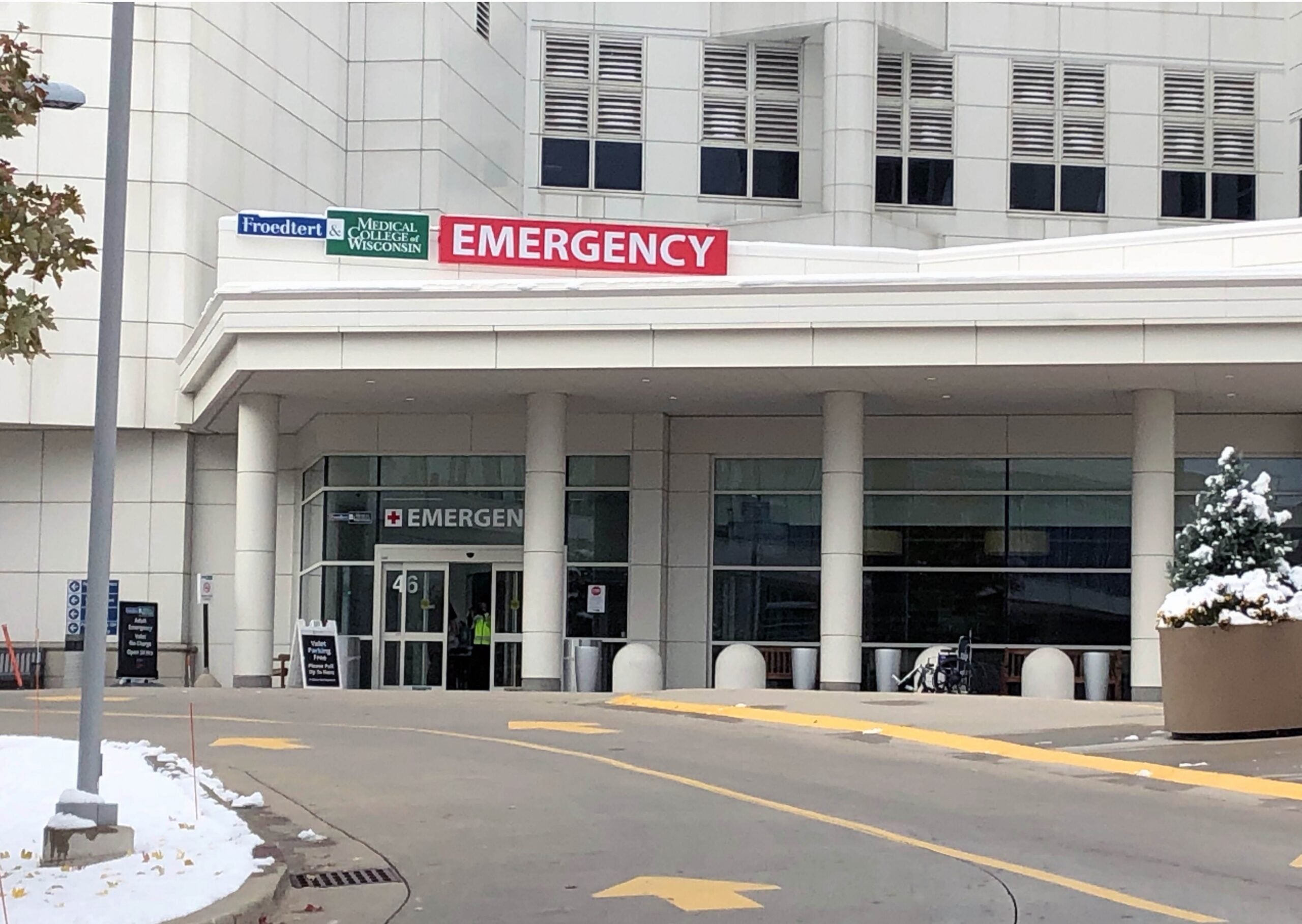Last week, President Donald Trump’s signed into law his spending plan known as the One Big Beautiful Bill Act, which includes substantial cuts to Medicaid funding and new requirements for people enrolled in Medicaid programs like BadgerCare Plus. Analysts estimate that tens of thousands of Wisconsinites could lose health care coverage under the law.
Donna Friedsam is distinguished researcher emerita and the former health policy programs director at the University of Wisconsin-Madison. She told WPR’s “Wisconsin Today” that 1 in 5 Wisconsin residents use Medicaid, which includes programs like BadgerCare Plus and Forward Health.
“About 40 percent of all births in Wisconsin and 40 percent of children are covered by Medicaid, and 60 percent of people in nursing homes on long-term care, or elderly and disabled people,” she added.
Stay connected to Wisconsin news — your way
Get trustworthy reporting and unique local stories from WPR delivered directly to your inbox.
Friedsam joined “Wisconsin Today” to talk about how the changes to Medicaid will impact health care access in Wisconsin, along with the state’s rural hospitals, many of which are already under financial stress.
The following has been edited for brevity and clarity.
Rob Ferrett: What are some of the most important changes to Medicaid that we’re seeing with this law?
Donna Friedsam: In Medicaid, what we’ve been hearing about a lot is the work requirements, and what it’s going to require is that what are called “able-bodied adults” ages 19 to 64 who do not have children under age 14 will need to demonstrate and document that they are working or otherwise training or attending school for at least 80 hours monthly.
That does not mean that these people are not already doing so, but that there will be new documentation and reporting requirements for these people. It also includes new requirements for enrolling in and renewing coverage twice a year. So every six months, everybody who is in Medicaid will need to demonstrate their eligibility for the program in order to continue to be in the program.
RF: Is there a concern that these new bureaucratic requirements would be barriers that prevent people who are eligible for Medicaid coverage from getting it?
DF: That is the significant concern that many people have for this program. Several other states over the past decade have tested work requirements — most notably Arkansas, but other states, as well — and we do have evidence to show that work requirements cost states a lot of money to administer because we need states to verify that people are working and how many hours they’re working or attending school or caring for a sick or needy relative, and they need to collect all the information.
But they have difficulty running those systems, and people have difficulty complying with all of the reporting requirements. So what we’ve seen in other states is that many of the people who are eligible for the program and are in fact working have still lost their coverage simply because of the paperwork requirements.
RF: There’s this notion that, for the work requirements in particular, these are able-bodied adults with no kids. How substantial a portion of Medicaid coverage is in that category?
DF: It’s a very minor percentage of overall Medicaid enrollees. In Wisconsin right now, we have about 190,000 what we refer to as “childless adults” enrolled in BadgerCare. But what we know from other studies is about 64 percent of childless adults who are enrolled in Medicaid are already engaged in employment — they just don’t get health coverage through their employment — and that the other 25 to 30 percent of those people are in school or caring for a sick relative or somebody else in need in their household. So there may be, like, 6 to 8 percent of that group who would not otherwise be either working or in school.
 Froedtert Hospital Emergency Room in Milwaukee, Wis. is seen in this photo taken Friday, Nov. 1, 2019. Health policy experts worry that emergency rooms will become overburdened as people lose Medicaid coverage and primary health care. Corrinne Hess/WPR
Froedtert Hospital Emergency Room in Milwaukee, Wis. is seen in this photo taken Friday, Nov. 1, 2019. Health policy experts worry that emergency rooms will become overburdened as people lose Medicaid coverage and primary health care. Corrinne Hess/WPRRF: On that note, some supporters of these changes have said this will keep immigrants living in the country illegally from using various Medicaid programs. My understanding is, for most programs, they wouldn’t be eligible even before this legislation. Do I have that right?
DF: There is no eligibility for undocumented immigrants and Medicaid, except for emergency Medicaid for women who are in labor and delivering at the hospital. Undocumented immigrants in Wisconsin don’t otherwise have access to coverage through the Medicaid program. So when an undocumented immigrant woman appears at a hospital, she will have temporary coverage to pay the hospital for the delivery of her baby, and that coverage will only deal with that episode, and that’s all.
There are new restrictions, however, from this bill for fully legally present immigrants and refugees who have come to this country legally and have been authorized by the U.S. government to be in this country as refugees who will no longer be eligible for the program.
RF: What do you see there that could impact us here in Wisconsin?
DF: This is an important thing, I think, for people to be aware of: Along with these changes to Medicaid, there are going to be changes in the Affordable Care Act where there’s going to be quite a few new rules for enrollment verification. There’s going to be restrictions in the timeframe for people to enroll, and there will no longer be what’s called automatic reenrollment.
In Wisconsin right now, we have about 300,000 Wisconsin residents enrolled in the ACA marketplace, and about a third of them rely on automatic reenrollment every year, rather than resubmitting all of their paperwork every year. And that will no longer exist, so every year, people will need to go through the process again in order to continue their plans. This is expected to create a barrier to continued coverage.
In addition, the enhanced premium tax credits that we’ve had over the past four or five years are not going to continue. What the actuarial firms are projecting is that we’re going to see up to a 75 percent increase in overall premiums in the marketplace over the coming year.
In Wisconsin, we actually have quite a few people who are up into the middle incomes who rely on marketplace coverage, and we have quite a few people ages 55 to 64, pre-Medicare, who rely on marketplace coverage who are not low-income necessarily. These residents will be seeing substantial increases in their premiums. So all of these things are expected to decrease people’s ability to participate or access health insurance coverage and likely increase the uninsured in our state.
RF: Another big point of concern is hospitals, especially rural hospitals, and their financial situation. What are you watching for with the impact of this law?
DF: You’ve all seen the headlines that rural hospitals are going to be stressed. We did see in the budget bill in the state a last-minute effort for the state to be able to pull down additional federal matching dollars through Medicaid, $1.1 billion, that should help the rural hospitals somewhat.
But I think it’s unfortunate that what we’re doing is providing these emergency funds to save the hospitals because we’re taking away insurance coverage for individuals. … We do see a lot of projections that about 30,000 people in rural Wisconsin will lose their Medicaid coverage, and we have quite a number of rural hospitals that will be stressed with these changes ahead.









 English (US) ·
English (US) ·